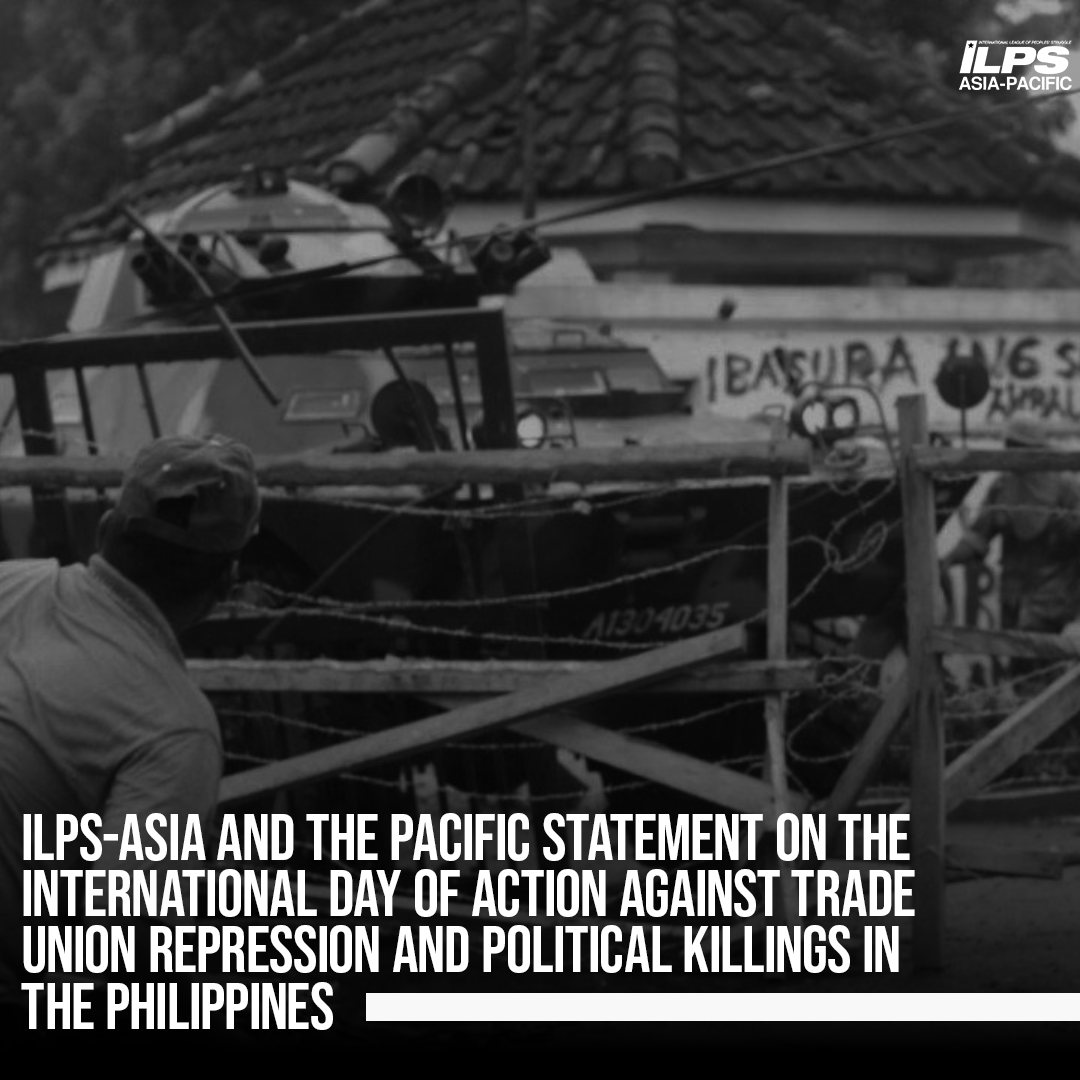ILPS-Asia and the Pacific statement on the International Day of Action Against Trade Union Repression and Political Killings in the Philippines

On November 16, 2004, during the strike of the working people inside the Hacienda Luisita, combined elements of the State opened fire and killed 7 of the strikers, with scores injured and hundreds arrested. Two decades have past and the notorious Hacienda Luisita Massacre have become emblematic of the brutal inequalities and systemic violence that have characterized the country’s history of land reform, labor rights, and social justice struggles. The massacre against the working people was not an isolated incident, and is part of the continuing exploitation, corruption, and the violent suppression of the working people of Philippines.
At the heart of the Hacienda Luisita massacre lies the tragic story of the landless and disenfranchised rural poor who have been denied their basic right to land, while the powerful elite — including political dynasties like the Cojuangcos — reaped the profits from this vast expanse of land. The Cojuangco family, including former President Corazon Aquino and her son, Benigno Aquino III, were at the center of this nexus of political and economic power. Hacienda Luisita, a sprawling estate in Tarlac, is owned by the Cojuangcos. They control the plantation through a complex web of ownership, with the land under the management of a company owned by the family.
Despite the promises of land reform, the workers who tilled the soil and harvested the sugarcane had little to show for their labor, living in poverty, subjected to inhumane working conditions, and constantly battling for their basic rights. In 2004, the workers of Hacienda Luisita — members of the United Luisita Workers Union (ULWU) and the Central Azucarera de Tarlac Labor Union (CATLU) — launched a strike to demand better wages, better working conditions, and most importantly, land. They took to the streets, hopeful that their collective action would force the Cojuangco family to finally honor the promises made decades earlier. Instead, their protest was met with overwhelming violence. Armed military personnel and police were deployed to break the strike, opened fire on the workers resulting in a bloodbath. Twenty years after, the perpetrator of the massacre remains free, impunity reigning and justice wanting.
The impunity covers the whole of Philippines. Working people remains impoverished and any effort to assert rights are met with harassment, vilification, arrests and imprisonment, and even murder. It is no surprise that Philippines have been part of the top 10 most dangerous country for workers in the past decade. Even the ILO was forced act, accept and mention that violations of working peoples rights are rampant and prevalent.
Their struggle is not over. In the Philippines, the fight for land reform, for workers’ rights, and for justice continues. The blood spilled in 2004 is a reminder that the struggle for rights, justice and land far are from over. The memory of those who died at Hacienda Luisita lives on, fueling the fire of resistance. In the near future, the working people will not just inherit the land — but also the dignity and justice that should be theirs by right.
ILPS-AP
November 16, 2024
Leave a Reply